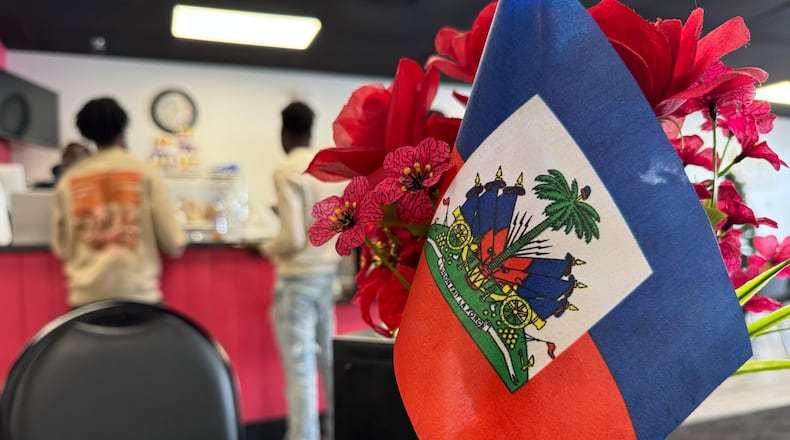The DHS directives could turn the roughly 520,000 Haitians legally in the U.S. under TPS into illegal immigrants after August.
“I think a lot of the folks who have TPS right now, if I’m them, I’m scared that I’m going to be deported,” said Mohamed Al-Hamdani, a Dayton-based immigration attorney who has helped Haitian immigrants navigate the U.S.‘s complex immigration system over the years.
Springfield and Clark County are home to an estimated 12,000 to 15,000 Haitian immigrants, most of whom are in the country legally under various federal programs including TPS.
What is TPS?
TPS is a discretionary tool created by Congress and vested to the executive branch. The intent is to grant qualifying foreigners temporary refuge from their home country if it is facing an armed conflict, environmental disaster, or extraordinary and temporary conditions.
Haiti was first granted TPS in 2010 following a massive earthquake that Haiti’s government estimated killed 310,000 people. The country has largely maintained its TPS status ever since. In the Biden Administration’s attempted renewal of Haiti’s TPS in July 2024, the DHS cited Haitian gangs' growing control of the country, a dysfunctional government, and the recent assassination of the country’s democratically-elected president.
“(TPS) allows you to work and live here safely while the issues in your country hopefully get better,” Hamdani explained to this outlet. “Obviously, things in Haiti have not gotten better; in fact they’re doing worse and worse by the day.”
The Trump Administration’s DHS, headed by Secretary Kristi Noem, argued Thursday that Haiti’s longstanding TPS designation has become a magnet for illegal immigration. A spokesperson stated that the Biden Administration tried to force the current administration’s hand by extending Haiti’s TPS for “far longer than justified or necessary.”
“We are returning integrity to the TPS system, which has been abused and exploited by illegal aliens for decades,” the spokesperson said via a press release. “President Trump and Secretary Noem are returning TPS to its original status: temporary.”
The DHS press release did not explain how Haiti’s TPS designation has been abused by illegal immigrants. It did, however, provide data to show that Haitian eligibility for TPS has skyrocketed from an estimated 57,000 eligible Haitians in May 2011; to 155,000 in August 2021; to 520,694 Haitians in July 2024.
Immigrants from designated countries must physically be in the U.S. in order to qualify for TPS. As previous reporting from this outlet found, most of the Haitians who wound up in Springfield originally entered the country legally through one of several federal humanitarian parole programs. From there, common practice has been to apply for TPS and eventually pursue some other legal status.
Hamdani said he’s aware of a small number of Haitians who have been able to receive some other form of legal status like a green card or asylum, but that the vast majority of Springfield’s Haitians will have little protection from deportation come August.
“It’s going to create a lot of issues for that community. It’s going to create a lot of issues for a place like Springfield — if these folks get deported, those are folks who work in our communities, pay taxes into communities, who are contributing to our communities," Hamdani said. “It’s going to be a lot of people. I don’t want to make it seem like it’s going to (only) affect a few people — it’s going to be a lot of people."
Recourse
Katie Kersh, an immigration attorney with Advocates for Basic Legal Equality (ABLE), told this news organization that the primary recourse Springfield Haitians are left with is to apply for asylum.
Traditionally, having an open asylum application has granted immigrants some level of protection from deportation, Kersh said, but she said those protections might not be enough to protect Haitians without legal status from being forcibly removed from the country.
If granted, asylum gives immigrants the ability to apply for a green card or lawful permanent status after a year, eventually apply for permanent citizenship, and bring a spouse and unmarried children under the age of 21 to the country.
In order to qualify for asylum, Kersh said, “You have to prove that you have a well-founded fear of future persecution in your country of origin ... and that that persecution would be done to you because of your race, religion, nationality, political opinion or membership in a particular social group.”
While Kersh said she’s had several Haitian clients file for asylum based on political persecution or for being targeted by the gangs that now control much of Haiti, she has “not seen anyone get granted asylum yet” due to backlogs in Ohio’s sole immigration court based in Cleveland.
Hamdani said Ohio’s immigration court, run by the federal executive branch, has “one of the worst approval ratings for asylum cases in the country, so the chances of these folks winning a case are already slim.”
“There’s not a whole lot of hope in the air right now when it comes to going through that process,” Hamdani said.
In early February, the Trump Administration made a similar move to end the protections for Venezuelans, an action that garnered legal challenges from nonprofit groups on Thursday.
The Associated Press contributed to this report.
For more stories like this, sign up for our Ohio Politics newsletter. It’s free, curated, and delivered straight to your inbox every Thursday evening.
Avery Kreemer can be reached at 614-981-1422, on X, via email, or you can drop him a comment/tip with the survey below.
About the Author

